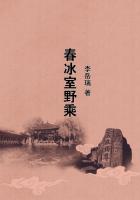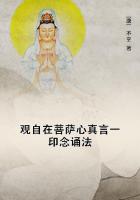On his return home Sir William seemed to have aged years.But he said nothing;indeed,it was a thing impossible.And from that hour a ghastly estrangement began.She could not understand it,and simply waited.One day he said,however,'I must go abroad.'
'Why?'said she.'William,have I offended you?'
'No,'said he;'but I must go.'
She could coax little more out of him,and in itself there was nothing unnatural in his departure,for he had been a wanderer from his youth.In a few days he started off,apparently quite another man than he who had rushed to her side so devotedly a few months before.
It is not known when,or how,the rumours,which were so thick in the atmosphere around her,actually reached the Lady Penelope's ears,but that they did reach her there is no doubt.It was impossible that they should not;the district teemed with them;they rustled in the air like night-birds of evil omen.Then a reason for her husband's departure occurred to her appalled mind,and a loss of health became quickly apparent.She dwindled thin in the face,and the veins in her temples could all be distinctly traced.An inner fire seemed to be withering her away.Her rings fell off her fingers,and her arms hung like the flails of the threshers,though they had till lately been so round and so elastic.She wrote to her husband repeatedly,begging him to return to her;but he,being in extreme and wretched doubt,moreover,knowing nothing of her ill-health,and never suspecting that the rumours had reached her also,deemed absence best,and postponed his return awhile,giving various good reasons for his delay.
At length,however,when the Lady Penelope had given birth to a still-born child,her mother,the Countess,addressed a letter to Sir William,requesting him to come back to her if he wished to see her alive;since she was wasting away of some mysterious disease,which seemed to be rather mental than physical.It was evident that his mother-in-law knew nothing of the secret,for she lived at a distance;but Sir William promptly hastened home,and stood beside the bed of his now dying wife.
'Believe me,William,'she said when they were alone,'I am innocent--innocent!'
'Of what?'said he.'Heaven forbid that I should accuse you of anything!'
'But you do accuse me--silently!'she gasped.'I could not write thereon--and ask you to hear me.It was too much,too degrading.
But would that I had been less proud!They suspect me of poisoning him,William!But,oh my dear husband,I am innocent of that wicked crime!He died naturally.I loved you--too soon;but that was all!'
Nothing availed to save her.The worm had gnawed too far into her heart before Sir William's return for anything to be remedial now;and in a few weeks she breathed her last.After her death the people spoke louder,and her conduct became a subject of public discussion.A little later on,the physician,who had attended the late Sir John,heard the rumour,and came down from the place near London to which he latterly had retired,with the express purpose of calling upon Sir William Hervy,now staying in Casterbridge.
He stated that,at the request of a relative of Sir John's,who wished to be assured on the matter by reason of its suddenness,he had,with the assistance of a surgeon,made a private examination of Sir John's body immediately after his decease,and found that it had resulted from purely natural causes.Nobody at this time had breathed a suspicion of foul play,and therefore nothing was said which might afterwards have established her innocence.
It being thus placed beyond doubt that this beautiful and noble lady had been done to death by a vile scandal that was wholly unfounded,her husband was stung with a dreadful remorse at the share he had taken in her misfortunes,and left the country anew,this time never to return alive.He survived her but a few years,and his body was brought home and buried beside his wife's under the tomb which is still visible in the parish church.Until lately there was a good portrait of her,in weeds for her first husband,with a cross in her hand,at the ancestral seat of her family,where she was much pitied,as she deserved to be.Yet there were some severe enough to say--and these not unjust persons in other respects--that though unquestionably innocent of the crime imputed to her,she had shown an unseemly wantonness in contracting three marriages in such rapid succession;that the untrue suspicion might have been ordered by Providence (who often works indirectly)as a punishment for her self-indulgence.Upon that point I have no opinion to offer.
The reverend the Vice-President,however,the tale being ended,offered as his opinion that her fate ought to be quite clearly recognized as a punishment.So thought the Churchwarden,and also the quiet gentleman sitting near.The latter knew many other instances in point,one of which could be narrated in a few words.















